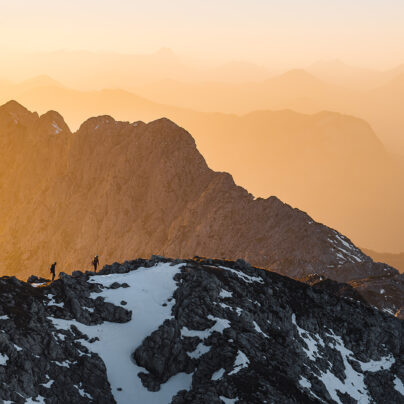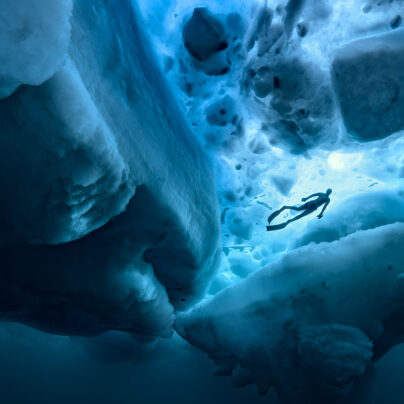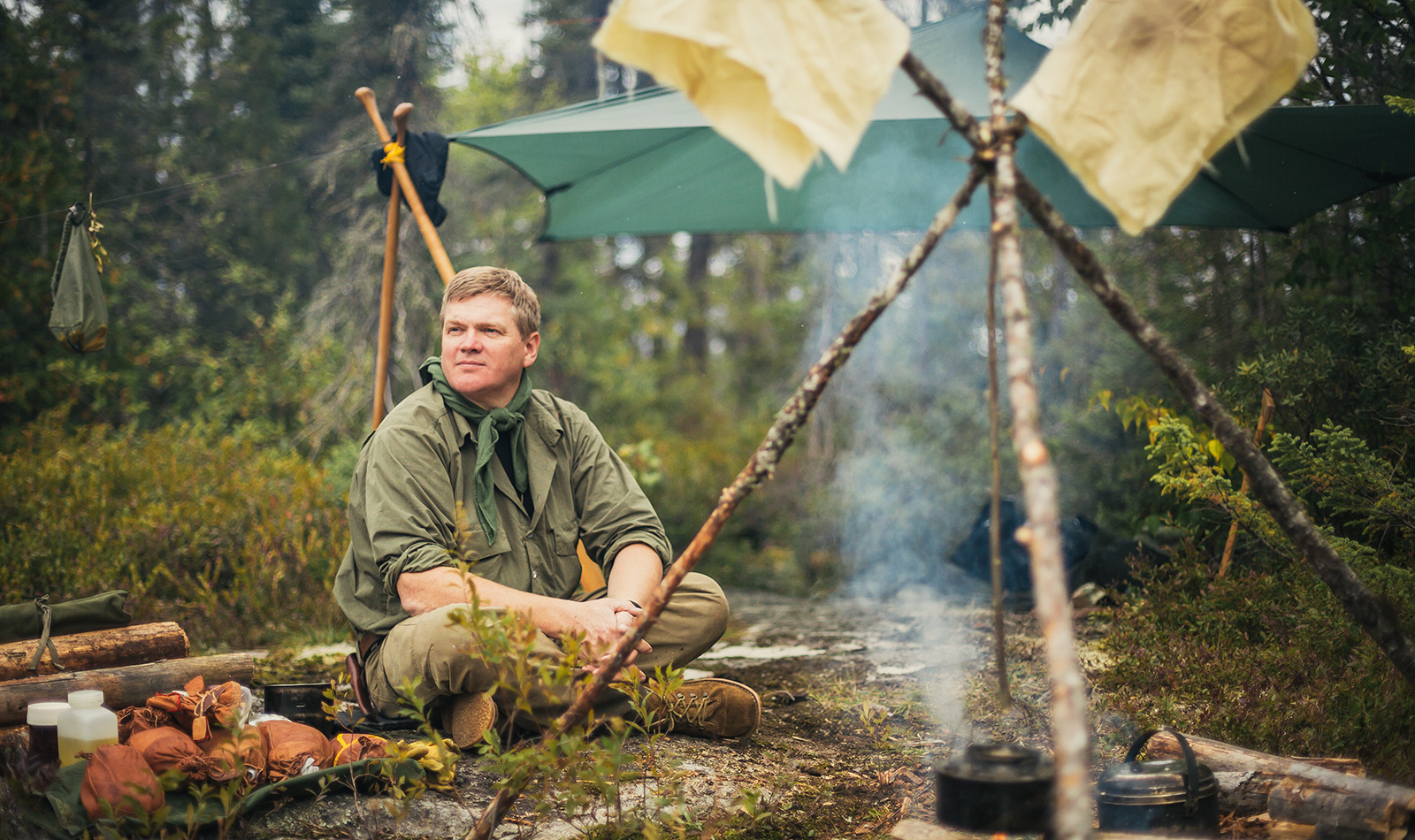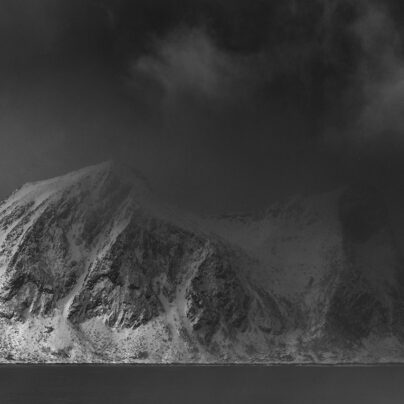In Search Of An Inner Silence
Pete Coombs travelled with Ray Mears, deep into Wabakimi Provincial Park
in Ontario’s far north in search of an inner silence.
We lean back against the shore side rocks of the Allen Water River, staring into the hypnotic flicker of our campfire. The smell of the bannock bread that slowly bakes in a small frying pan aside the fire reaches my nostrils, fuelling my already strong hunger – the type that only a day of hard exercise can form – further. A creeping dusk is falling across the slow moving water; the haunting call of a loon fills the air. A golden eagle swoops down to its evening perch on the opposite bank of the river, and is lost from sight in the boreal forest that stretches around the world, broken only by the earth’s northern seas and oceans.
“I love it here,” says Ray. “There’s an inner silence here, that’s hard to find in our modern world.”
It had been a long, yet easy, journey to get to such an isolated site. It started with a short flight from Toronto to the Lake Superior harbour town of Thunder Bay, a historic city with links back to the Hudson Bay Trading Company and the notoriously arduous fur trade. From Thunder Bay we drove for an hour and a half through a forest of pine, birch and aspen, to the tiny railway settlement of Armstrong, where the road ends at the Trans Canadian railway line. There we waited for a seemingly endless goods train to pass, before crossing the line to stock up at the frontier-style local store. It’s packed to the rafters with everything from hunting equipment to children’s toys, as well as all the supplies we need for our short trip into the wilds of Ontario’s far north.
We spent the night in the Wabakimi Wilderness lodge, owned by Bruce Hyer, a Canadian MP for the green party and driving force behind the creation of Wabakimi Provincial Park – possibly the world’s largest canoeable reserve, being over 5 million acres in size. The park can be accessed straight from the lodge, but as time was short we opted to utilize a local float plane operation to quickly access the depths of the park. After strapping our canoes to the planes stanchions, we were soon bumping high over a wilderness area that stretches way beyond the horizon of even our lofty view point.
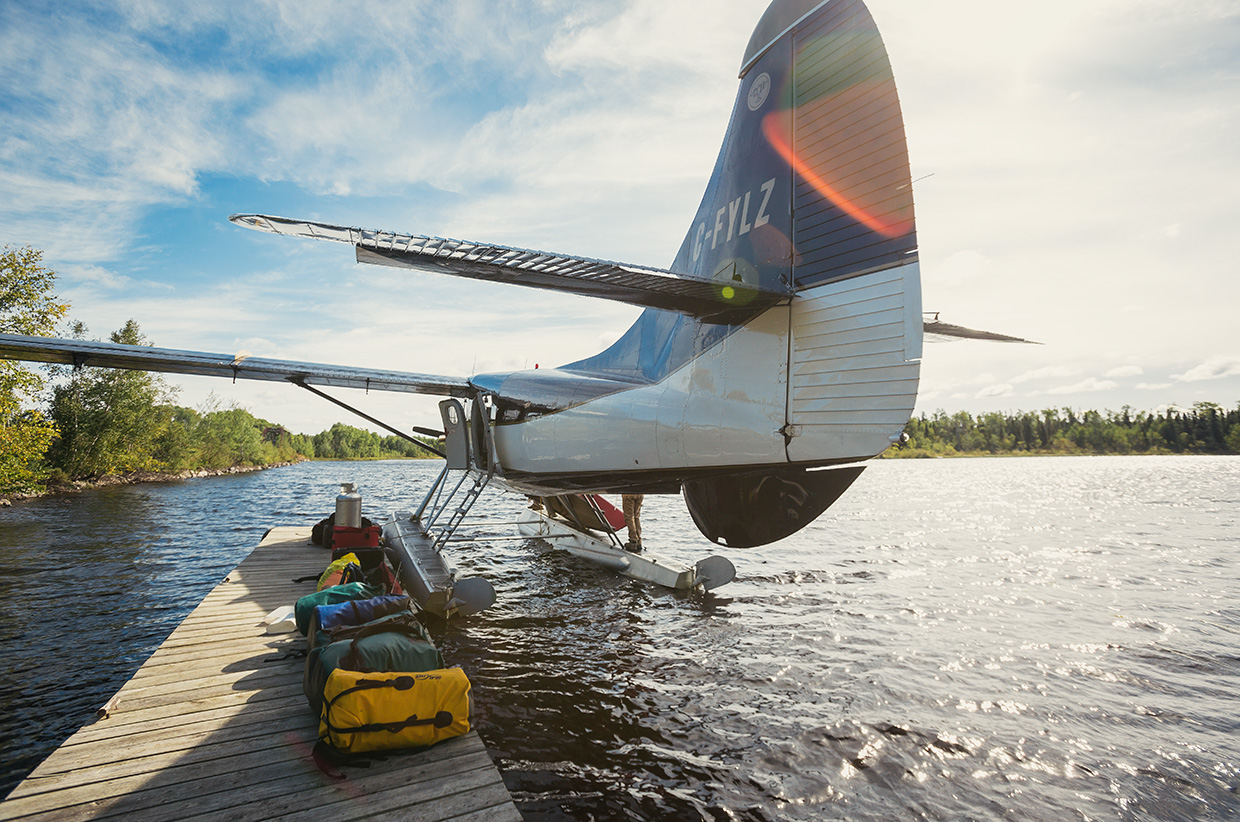
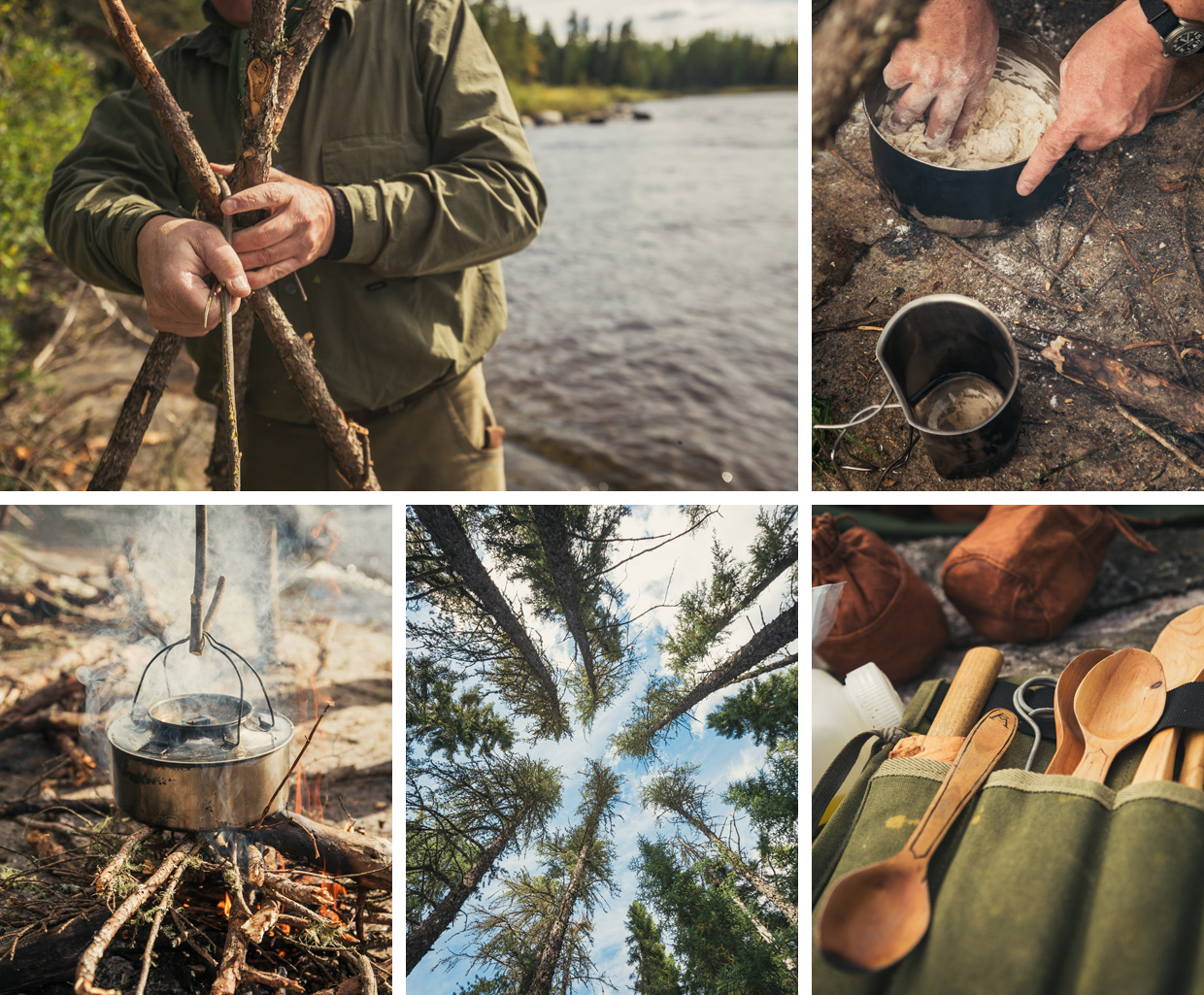
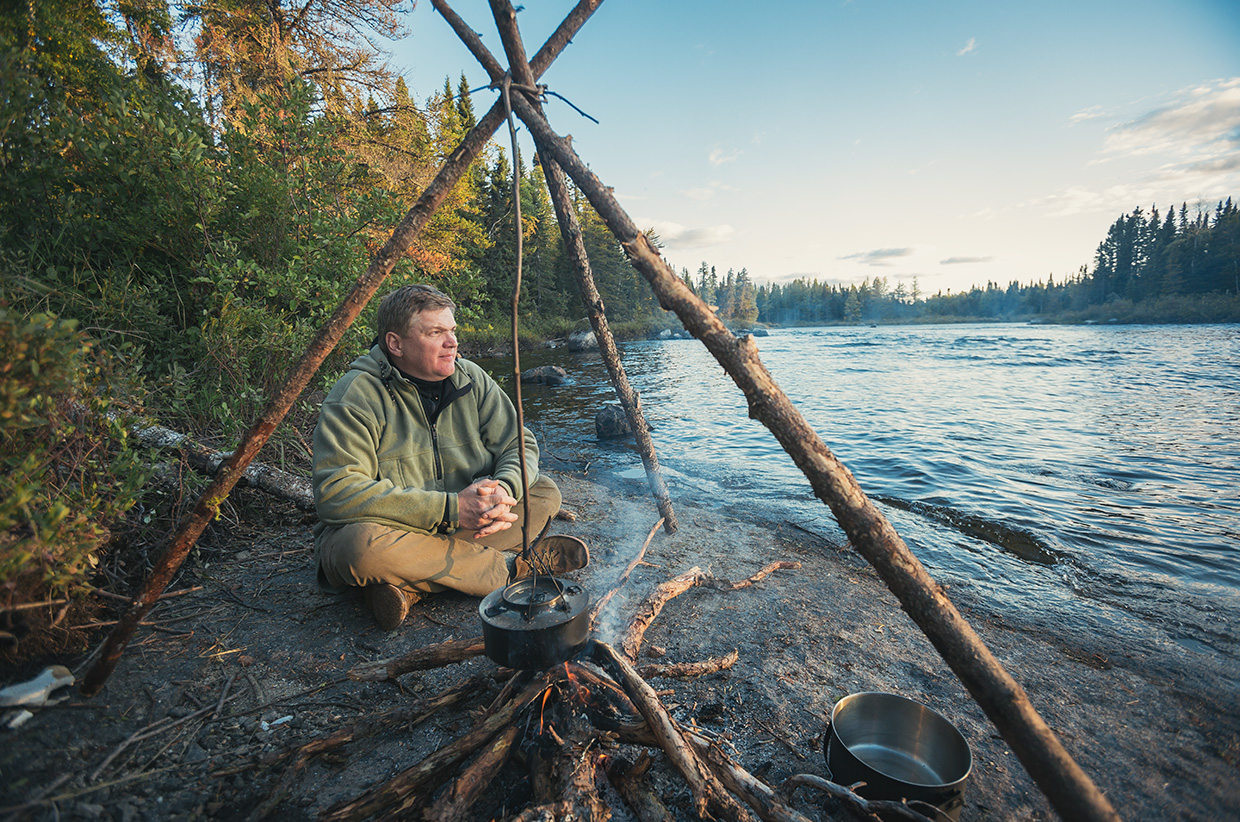
Ray writes something in a note pad, before slipping it back into his kitbag. I’m not sure if it’s a thought, or something he’d seen on the flight, but you could see it was a personal moment, so I didn’t intrude.
We paddle our canoes away from our drop off point to where the river narrows. Bringing our paddles into the boat, we drift on the slow current while taking in our surroundings. At first it seems silent, but as we detune from the static of our normal lives, we begin to notice the sounds of nature, the gentle lapping of the water against our canoes, the rustling of the wind in the trees, the just audible scurrying and chatter of unseen wildlife.
Meditation over, Ray picks up his paddle and nods in the direction of our travel – and we continue wordlessly towards the spot where we now relax.
Pete: Earlier, you talked of how traveling here wasn’t like entering a woodland but more like becoming part of the forest.
Ray: I’ve always felt like that with forests in general. The bigger the forest, the more you feel it, and the smaller you personally feel. It’s hard to explain, but there’s energy. When I look back on some of my journeys into large forests, it’s always there.
Once you leave a city and are traveling deeper into the forest there’s a hush. It’s very hard to explain but there’s a secret and you feel it, it’s like a vibration that passes right through you. When you sit still and simply stop, in any forest – even a small woodland in the UK – you can understand that there is a bigger force in the world than you. It’s a very unusual experience for a modern human being.
So when you’re travelling through the forest on your own, do you feel alone?
The first thing I should say is that I don’t think it suits everybody. You have to be confident in your own company and competent at taking care of yourself.
When you enter the boreal forest, it steps up your level of ‘outdoor pursuiting’. In all outdoor pursuits you have this thing of perceived risk, which is different to real risk. For example, you can go sailing in the UK, and it can feel like the most dangerous thing you’ve ever done but actually it’s very safe – yet there’s can still be a lot of personal growth in it. But when you step into the wilderness, you’re not in control of things anymore, and your safety comes in different ways. You have to pay attention and listen, listen to the voice of the clouds and the weather and act appropriately.
Do I feel alone? (Ray pauses to contemplate before continuing) The first day of a trip is always strange, as I’m readjusting to only hearing my own voice, my internal voice, for dialogue. There is a sense of being torn away from support. By the second day it becomes normal, and by the third I don’t want any external stimulus, as I’m getting it from nature. It makes you more intuitive and more connected to bigger things. Even at home I still get that feeling, but here, because the forests larger, it’s more intense; more swift.
Connecting with the wildlife around me is a big part of it. You can get closer to wildlife when travelling alone, as there’s no one chatting, but there’s also a calmness of spirit in travelling alone in the wild. Wildlife won’t flee anymore and instead will stop and look at you, it’s as if you too have become part of the secret that they are a part of.
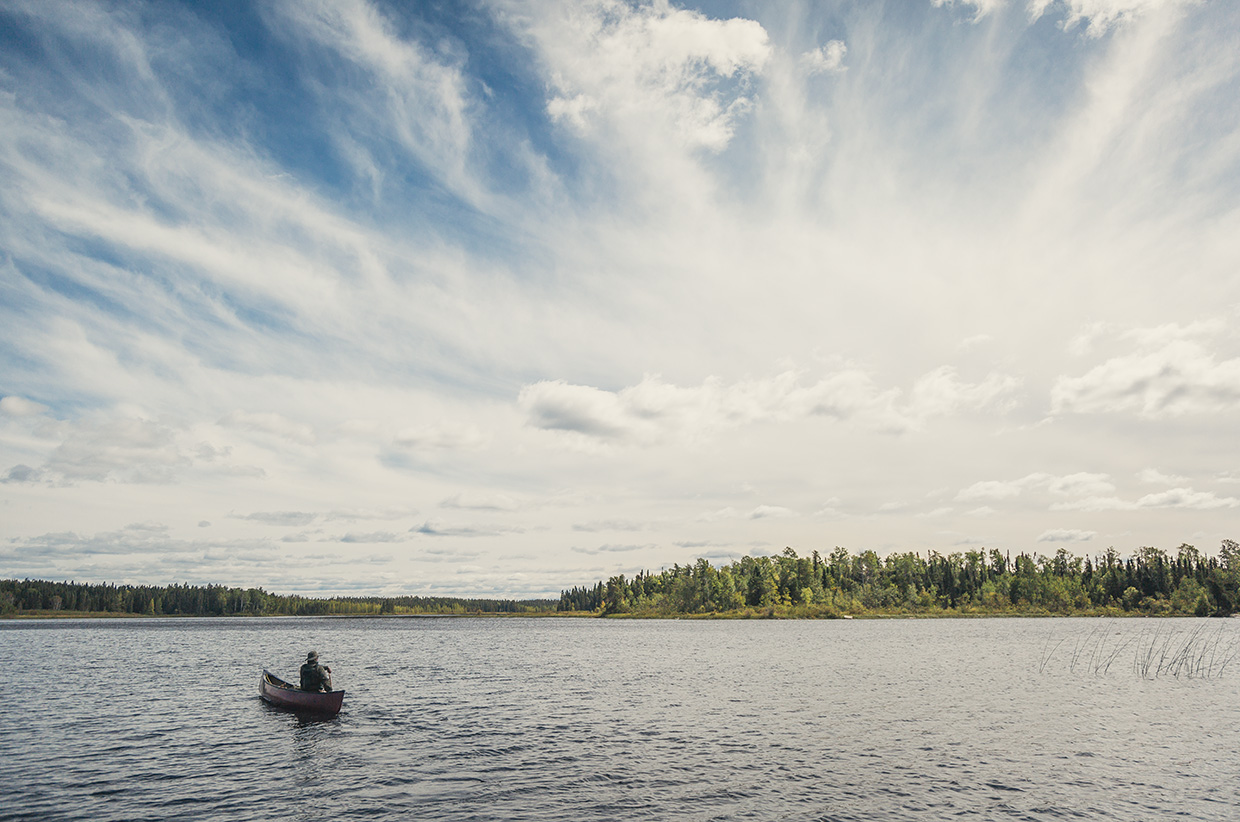
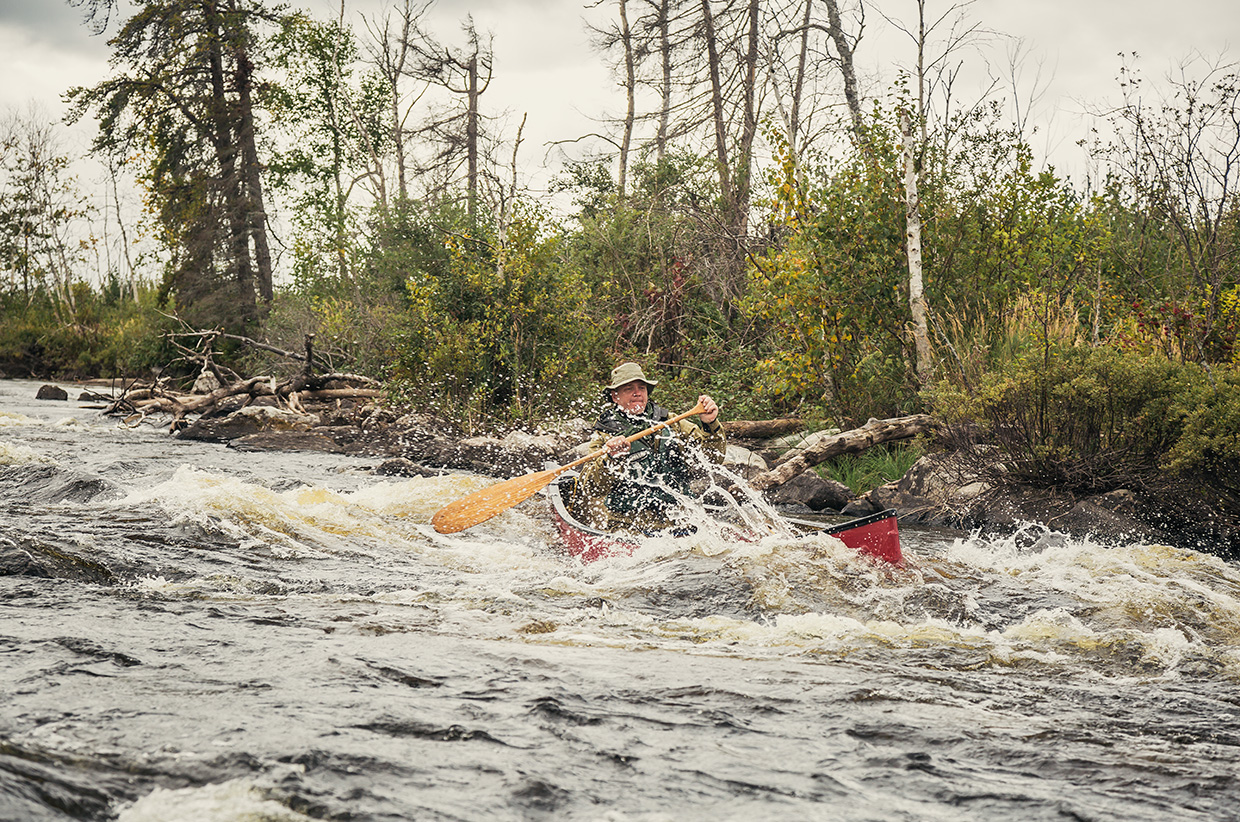
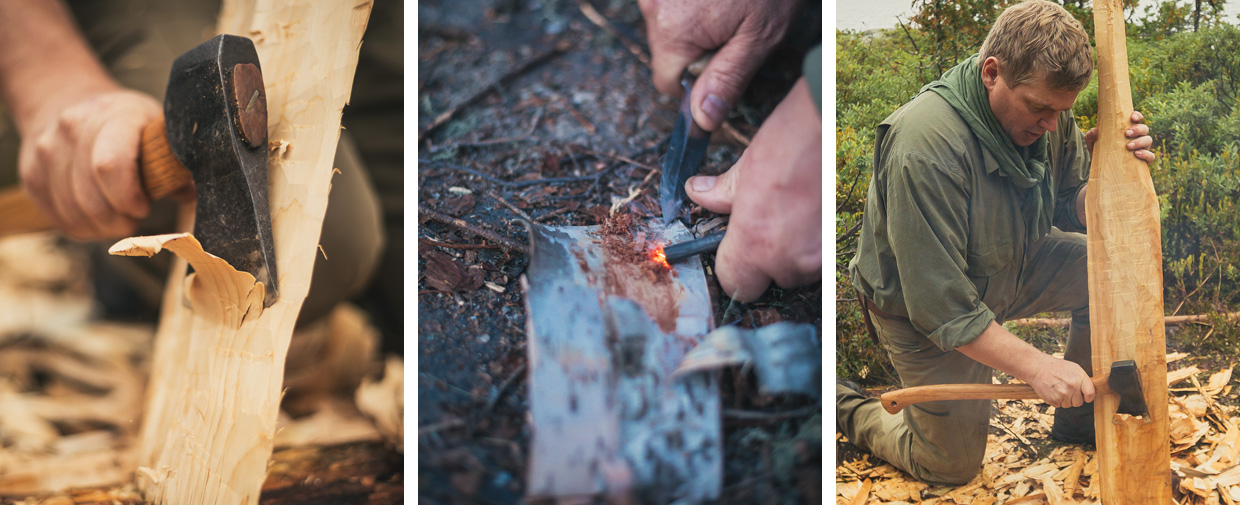
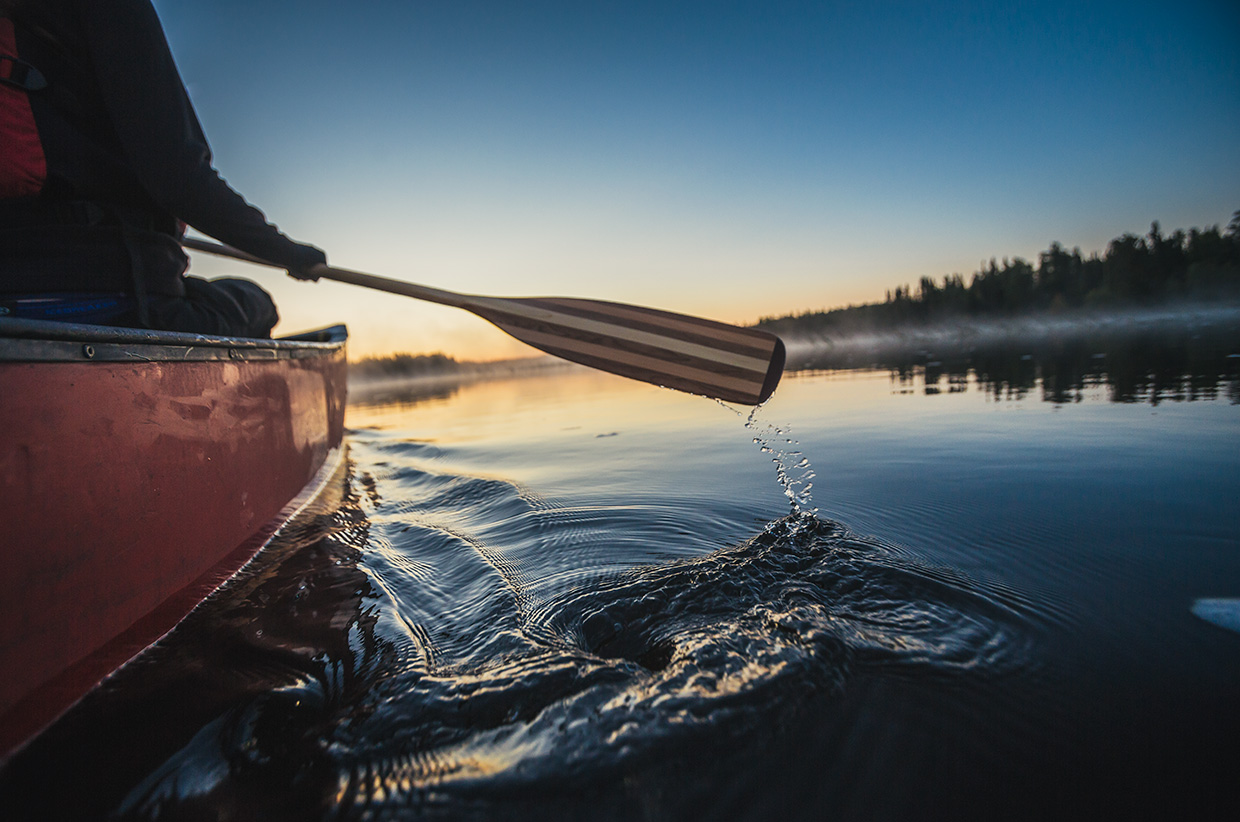

Through using them, it’s the only way. These skills shouldn’t be seen as just tricks, to show people once or twice. They have to be lived; when they’re lived they become insightful, and you’ll find five skills soon becomes fifty, because you become so skilled at them they blend and become something new.
As for Canadian trippers, they are very respectful to First Nation traditions. That’s what so special about travelling by canoe in the wilderness, as there’s a huge mutual respect. I feel that sometimes we’re a little over protective. It’s very important to get some dirt under your fingernails, to feel nature. It’s been proved that the rise in allergies is linked to our sterile world.
There’s a First Nation tradition of leaving tobacco behind, when you take something from the forest. But many of the First Nations I’ve worked with say that isn’t important – what’s important is the understanding that what anyone does in the wild has a consequence. Nothing in nature is free: If you remove a root from a tree, it won’t grow back. You have to appreciate a long term sustainability; and this is something we can and should learn from the First Nations.
Leaning forward, Ray turns the bannock bread over in the pan, and pours us both a cup of tea from the kettle hanging over the flames.
How did your passion with bush craft begin?
When I was at school I had to do Judo, and my instructor had been behind the lines in Burma in the Second World War. When I was seven, I told him I’d been tracking foxes and I wanted to follow them at night, but had no camping equipment. He said you don’t need any. That’s when I first started to learn, and the beauty of the subject is that the more you learn, the more you want to learn – you never stop learning. When I was a kid, my friends would always come to look at me in the woods, rather than go to my house. I’m possibly one of the last generations to have such freedom, which is a shame.
My company, Woodlore, teaches children by taking them out into the wilderness. Children are the best learners, so it’s important they get the best teachers. One First Nation community I worked with talked of the need to be as strong as two people; teaching children traditional skills whilst at the same time ensuring they do well at school – so they can stand as adults, both with the heritage of the past as well as the knowledge of today.
For the chance to win an all expenses paid adventure with Ray Mears to Wakakimi Provincial Park, click here: adventure.travelontario.co.uk
Written by Pete Coombs | Photography by Goh Iromoto
